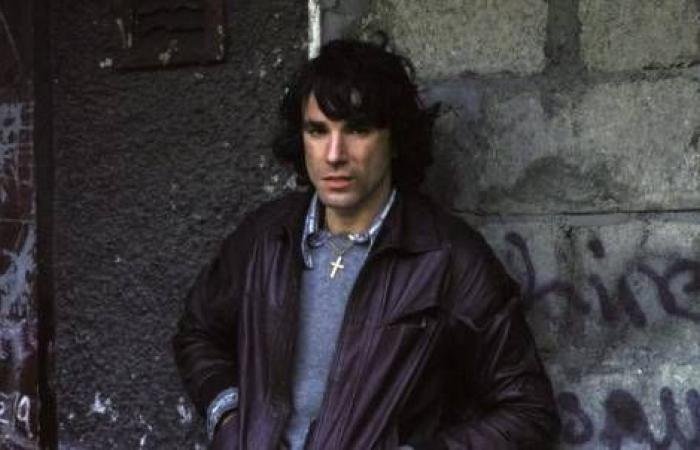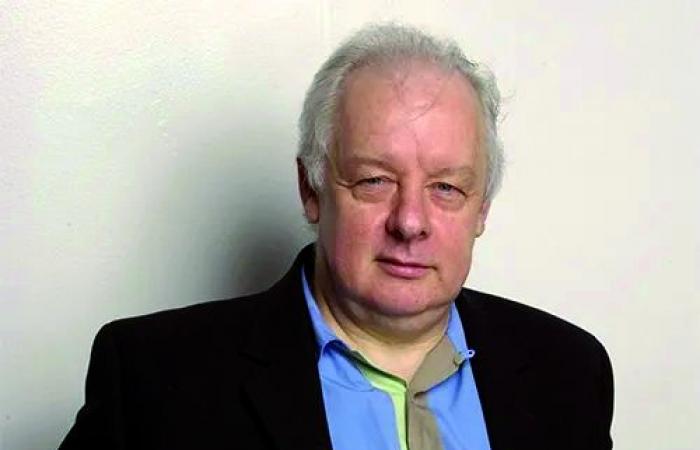Like every third Sunday in June, last year we celebrated Father’s Day, that figure that has also been an essential element in the development of the film industry, whether showing us those who overflow with love and responsibility for their children, or those who are absent, but still leave their mark. One of the films that corresponds to this profile, even from its recurring title, is In the name of the Father (In the name of the father in English).
Its premiere took place in Ireland on December 12, 1993 and is based on Gerard Conlon’s autobiographical book, Proved Innocent. With a duration of 133 minutes, its director, the Irishman Jim Sheridan (My left Foot, The meadow), turns the tragic real event of the so-called “Guilford Four” into a film.
In 1974, these young Irishmen, led by Gerry Conlon (Daniel Day-Lewis), as well as the father and several relatives, were convicted and imprisoned as perpetrators of an attack by the Irish Republican Army (IRA) against a London club, which caused the death of several people.
The story reaches its climax once Gerry is arrested and we immerse ourselves with him in a truly endless nightmare, a tunnel in which there seems to be no exit. The physical and mental torture to which Conlon is subjected hurts us in our own flesh.
Sheridan took the risks and dared to show us through his film one of the most regrettable chapters in the universal history of state terrorism. It constitutes a shocking social denunciation of a true imprisonment, mainly of a father and son, falsely accused of committing an attack.
Several themes are dismantled: the vital and almost spiritual learning of a young man who becomes a man in prison, the invocation of forms of the noir and prison genre, the fight against oppression and the cruelty of ritualized revenge. All this indicates that it is probably Sheridan’s best film or, at least, the most universal.
Daniel Day-Lewis’ performance is, for lack of another qualifier, impressive. With his appearance, the London actor plays a tormented Irishman, behaving like a teenager, even though he was 35 years old at the time) and as the film progresses we see him transform into an adult man. Day-Lewis was very clear that he was, along with his colleague Postlethwaite, the key to making the public perceive the passage of time as something real.
Pete Postlethwaite, in turn, plays a prodigious role as a supporting actor, among other things because he has always been a great figure in the cinema, and makes Day-Lewis’ work even greater, the ultimate example of support between two artists in the face of the camera. We also perceive in his character the deterioration of 15 years in prison and the effects of the illness that begins to attack him. The dramatic charge reaches a high level in each scene, especially in the moments shared by father and son, sparking anger and incomprehension.
The performance of Emma Thompson also stands out, who manages to provide dignity and humanity to this lawyer who fights against the entire British judicial system. She has a brief but splendid role, especially in the final judgment scene, when lawyer Gareth Pierce defends Gerry’s freedom tooth and nail.
It is a dense film, in which emphasis is placed on denouncing a police system more interested in finding a culprit than in discovering the truth. The initial interrogation sequences are shocking, especially because they are more psychological than physical torture.
Later, the story follows the style of a prison drama, presided over by the relationship between Gerry and Giuseppe, a simple and honest person who tries to guide his son. Despite frequent arguments, they love each other and a rapprochement will gradually occur between them. In this aspect, a very well-conceived sequence stands out: the projection in the prison of The Godfather by Coppola. Sheridan shows the scene in which Don Vito expresses the hopes he had for the future of his son Michael.
The progressive knowledge that the protagonist makes of his own father enhances the film, taking it beyond the coordinates of political cinema to become a film of discovery, personal transformation and maturation. Sheridan narrates in detail each of his protagonist’s tribulations, from the interrogation scenes to those of the final judgment, from the violent initial scenes in a depressed and gray Belfast to the bucolic and luminous ones of Gerry and his friend Paul living as hippies on the streets of London.
Its best successes are in the dedication of its actors, a rebellious, immature and violent Daniel Day-Lewis, an Emma Thompson who does not flinch in the face of the inclemencies of justice, but above all, in a Pete Postlethwaite – at that time a semi-unknown veteran for large audiences and which was the great discovery of the film—embodying an honest, patient and understanding father. Giuseppe is a religious man, whose rocky faith is what keeps him hopeful.
Don’t stop knowing
Gerry Conlon, who was wrongly sent to prison for the IRA pub bombing in Guilford in 1974, died on June 21, 2014 in Belfast, Northern Ireland, aged 60. After a few years, Conlon was ill for a time. “We recognize that what he accomplished fighting for justice was far more important to us; he forced the world to open its eyes to injustice,” his family said in a statement.
“I was in prison for 15 years for a crime I didn’t commit,” Conlon said when he was finally released in 1989 following an appeals court decision to overturn the sentences of the Guildford Four after questions were raised. about police evidence. It was not until 2005 that British Prime Minister Tony Blair apologized to the Guildford Four, calling the convictions a miscarriage of justice. “They deserve to be completely and publicly exonerated,” Blair said at the time.
The Irishman Jim Sheridan turned the tragic true event of the so-called “Guilford Four” into a film. Photo: filmaffinity.com
Members of the Conlon and Maguire families were imprisoned in connection with the 1974 Irish Republican Army bombings in Guildford and Woolwich, England. The attacks resulted in the deaths of seven people and more than one hundred injured.
Northern Ireland Social Democratic and Labor Party (SDLP) leader Dr Alasdair McDonnell has expressed his condolences to the Conlon family. He called the miscarriage of justice suffered by Conlon and his father Giussepe as egregious and terrible. «He was a shining light in the search for truth and a tireless defender of justice. Gerry will be missed by the SDLP, the wider community and I,” McDonnell said.
Eamon Gilmore, Ireland’s foreign minister, reflected: ‘In recent years, Gerry has used his experiences to campaign for others with the group Miscarriages of Justice Organisation. “His loss will be felt both in the west Belfast community and around the world, with all those fighting for justice.”
The film achieved critical recognition and received seven nominations at the Academy Awards in different categories: Best Actor (Daniel Day-Lewis), Best Supporting Actress (Emma Thompson), Best Supporting Actor (Pete Postlethwaite), Best Editing (Gerry Hambling), Best Adapted Screenplay (Terry George and Best Film and Best Director (Jim Sheridan).







